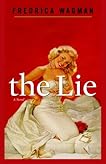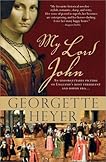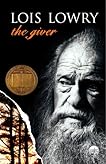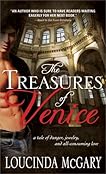The book is Growing a Reader from Birth: Your Child's Path from Language to Literacy by Diane McGuinness. Obviously I am interested in having a child who is a reader. I
 think the main reason why I am such a big reader is because both my parents modeled reading as a (very) common behavior as I was growing up. After reading this book, especially the last chapter about current literacy programs in schools, I have been thinking about how I learned to read. I actually do remember bits and pieces of learning, but not where it came from. But when I think about it hard enough, I think that my mom must have taught me before I started school. I remember being way ahead of the other kids, even when I started in the gifted program in second grade. Go Mom!
think the main reason why I am such a big reader is because both my parents modeled reading as a (very) common behavior as I was growing up. After reading this book, especially the last chapter about current literacy programs in schools, I have been thinking about how I learned to read. I actually do remember bits and pieces of learning, but not where it came from. But when I think about it hard enough, I think that my mom must have taught me before I started school. I remember being way ahead of the other kids, even when I started in the gifted program in second grade. Go Mom!So, back to the book review. McGuinness structures the book by your child's age, beginning with the first year of life. For each section she reviews the literature on language development. (Her basic premise is that in order to be a good reader, we must first have top-notch communication skills.) She distills the important information out of the most current studies, and offers it to the reader in a coherent fashion. She finishes each section by discussing ways that parents can improve their child's language development, based on the current science.
Many of the tips are self-explanatory (talk to your child!), but she gives important details and ways to test your own communication style. The ideas that resonated the most with me were the difference between a repetitive style and an elaborative style, and, related to that, letting your child guide the conversation, rather than forcing it where you want it to go. The communication styles refer to conversations with toddlers - a repetitive style is one that mostly contains one-word answers and does not bother to expand on the topic under discussion, while the elaborative style is one where the parent adds lots of extra information on the topic under discussion, especially if it is one the child finds interesting. An example of an elaborative conversation from the book is -
Parent: What did we see down in the harbor?
Child: Boat
P: Yes we did, we saw a lot of boats didn't we? Do remember, some were big and some were small.
C: Small boat. Bird.
P: Oh, you remember the birds! We saw birds sitting on the small boat didn't we? Looking for fish. Do you remember what kind of birds they were?
C: Fish birds?
P: No they're called seagulls. Can you say seagulls?
C: Seagulls.
P: Good! That's very good!
The boy in this example is thirty months old. This is contrasted with the actual conversation, where the dad kept changing the subject to try to get the "proper" response from his son. That conversation ended with the boy in tears. Obviously not much learning taking place in that case. The key is to not be afraid to talk more than your child. He needs to hear you, as long as you're giving him a chance to participate as well.
The book ends with a discussion of current literacy practices in schools, and how, for the most part, they do nothing to actually teach children how to read. From McGuinness's examples, it's hard to see why these are the methods that are still predominate. She gives tips on investigating your school's methods, and what programs you can use at home if your school is not using a phonics-based method.
As you can probably see, I really thought this was an excellent book, and I highly recommend it for parents with children ages five and under. I know I will be using all of the tips, as well as modeling reading to my child. I kind of can't help that part!
























